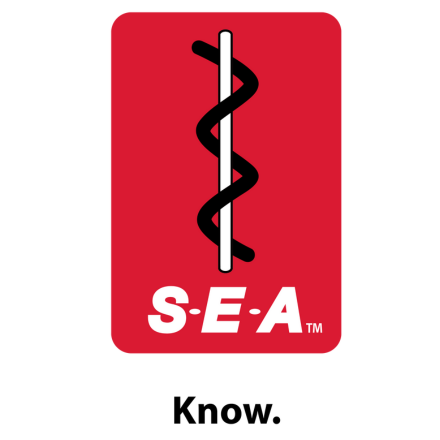Court System Summary MassachusettsAt Themis Advocates Group, we are committed to providing invaluable resources to members and clients alike.
Name of Preparer: Michael J. Mazurczak and Brian C. Davis City and State of Firm: Boston, Massachusetts Overview of State of Massachusetts Court SystemA. Trial CourtsThe MA Trial Court System consists of the Supreme Judicial Court, The Appeals Court, seven Trial Court departments, the Massachusetts Probation Service, and the Office of Jury Commissioner. The seven Trial Court Departments are: district courts, Boston Municipal Court (“BMC”), land court, superior court, housing court, probate and family court, and juvenile court. The Massachusetts District Court (also known as the District Court Department of the Trial Court) is a trial court in Massachusetts that hears a wide range of criminal, civil, housing, juvenile, mental health, and other types of cases. District Court criminal jurisdiction extends to all felonies punishable by a sentence up to five years, and many other specific felonies with greater potential penalties; all misdemeanors; and all violations of city and town ordinances and by-laws. In felonies not within District Court final jurisdiction, the District Court conducts probable cause hearings to determine if a defendant should be bound over to the Superior Court. District Court magistrates conduct hearings to issue criminal complaints and arrest warrants, and to determine whether there is probable cause to detain persons arrested without a warrant. Both judges and magistrates issue criminal and administrative search warrants. In civil matters, District Court judges conduct both jury and jury-waived trials, and determine with finality any matter in which the likelihood of recovery does not exceed $50,000. The District Court also tries small claims involving up to $7,000 (initially tried to a magistrate, with a defense right of appeal either to a judge or to a jury). The Massachusetts Superior Court (also known as the Superior Court of the Trial Court) is a court department in Massachusetts. Effective January 1, 2020, the Superior Court has original jurisdiction in civil actions exceeding $50,000 and in matters where equitable relief is sought. It also has original jurisdiction in actions involving labor disputes where injunctive relief is sought and has exclusive authority to convene in medical malpractice tribunals. There is a Superior Court department located in each of Massachusetts’ fourteen counties. B. Appellate CourtsMassachusetts has two appellate courts – the Supreme Judicial Court and the Appeals Court. The Supreme Judicial Court is the highest appellate court in Massachusetts, and consists of one chief justice and six associate justices. The Supreme Judicial Court has appellate jurisdiction over all Trial Court appeals and has concurrent jurisdiction with the Appeals Court over most matters, with the exception of first degree murder conviction review. MGLA c 211A § 10. Additionally, the Supreme Judicial Court can elect to review appeals entered in the Appeals Court, on its own motion, or in response to a party’s request for direct appellate review or application for further appellate review following a decision by the Appeals Court. (Mass.R.A.P. Rules 11 and 27.1) The Appeals Court consists of a chief justice and 24 associate justices. The Appeals Court has concurrent jurisdiction with the Supreme Judicial Court with respect to decisions by the appellate tax board in the superior court, the housing court, the land court, the probate and family court, the BMC in criminal matters, the BMC appellate division, the juvenile court, the district court in criminal matters, and the district court appellate divisions, with the exception to first degree murder conviction review. MGL c 211A § 10. Cases are typically heard and decided by a panel of three justices. ProceduralA. VenueMGLA 223 § 1: A transitory action shall, except as otherwise provided, if any one of the parties thereto lives in the commonwealth, be brought in the county where one of them lives or has his usual place of business; provided, however, that if the instrument of the crime is a forged check, credit card, or other negotiable instrument, intending on its face to be presented for payment at another place in another county and the value of the money, goods or services involved is in excess of one hundred dollars, the action may be brought in the county where the instrument was presented or at the place where the instrument was presented for payment, if such place of payment is located in the commonwealth; and provided, further, that except in actions upon negotiable instruments if the plaintiff is an assignee of the cause of action, it shall be brought only in a county where it might have been brought by the assignor thereof. If neither party lives in the commonwealth, the action may be brought in any county. If an action is dismissed because the defendant has raised timely objection to venue, the defendant shall be allowed double costs. MGLA 223 § 2: Except as provided in section twenty-one of chapter two hundred and eighteen, a transitory action in a district court shall be brought in a court in the judicial district where one of the parties lives or has his usual place of business or in a court, the judicial district of which is adjacent to the judicial district where one of the parties lives or has his usual place of business or, if in connection with the commencement of such an action the approval of trustee process is sought, that action shall be brought in a court in the judicial district where one of the parties or any person alleged to be trustee lives or has a usual place of business, or in a court the judicial district of which adjoins the judicial district where one of the parties or one of the alleged trustees lives or has a usual place of business; provided, however, that an action may be brought in the municipal court of the city of Boston as provided in section fifty-four of chapter two hundred and eighteen. Said courts shall have jurisdiction of a transitory action against a defendant who is not an inhabitant of the commonwealth, if personal service or an effectual attachment of property is made within the commonwealth; and such action may be brought in any of said courts in the county where the service or attachment was made. MGLA 223 § 13: If the supreme judicial or superior court finds that a party to an action or proceeding pending therein cannot, by reason of local prejudice or other cause, have an impartial trial in the county where the action or proceeding was commenced, it may, upon the application of either party, order it to be removed for trial to another county. Upon the entry of such order, the clerk of the court in which the action or proceeding is pending shall forthwith transmit all the papers in the case and a certified copy of said order to the clerk of the court for the county to which it has been ordered to be removed. The clerk who receives such papers and order shall forthwith enter them on his docket, and the case shall thereupon proceed as if it had been originally commenced in the county to which it has been removed. B. Statute of LimitationsTort claims, fraud, negligence, products liability (negligence-based), unjust enrichment: 3 years (M.G.L. c. 260 § 2A). Tort-based (personal injury) breach of warranty claims: 3 years (M.G.L. c. 106 § 2-318). Contract claims: 6 years (M.G.L. c. 260, § 2). Contract-based actions for breach of warranty and breach of contract for sale of goods governed by UCC: 4 years (M.G.L. c. 106 § 2-725(1)) Consumer protection claims (ch. 93A or 176 D): 4 years (M.G.L. c. 250 §5A). Employment discrimination: 300 days to file with MCAD/3 years to file action in Superior court (M.G.L. c. 151B §§5 and 9) Worker’s Compensation claims: four years (M.G.L. c. 152 § 41) C. Time for Filing an AnswerA party has 20 days to file an answer after service of the complaint. (Mass. R. Civ. P 12(a)(1)) D. Dismissal Re-Filing of SuitMGLA 260 § 32: If an action duly commenced within the time limited in this chapter is dismissed for insufficient service of process by reason of an unavoidable accident or of a default or neglect of the officer to whom such process is committed or is dismissed because of the death of a party or for any matter of form, or if, after judgment for the plaintiff, the judgment of any court is vacated or reversed, the plaintiff or any person claiming under him may commence a new action for the same cause within one year after the dismissal or other determination of the original action, or after the reversal of the judgment; and if the cause of action by law survives the executor or administrator or the heir or devisee of the plaintiff may commence such new action within said year. Mass R. Civ. P. 41: (a) Voluntary Dismissal: Effect Thereof. (1) By Plaintiff; By Stipulation. Subject to the provisions of these rules and of any statute of this Commonwealth, an action may be dismissed by the plaintiff without order of court (i) by filing a notice of dismissal at any time before service by the adverse party of an answer or of a motion for summary judgment, whichever first occurs, or (ii) by filing a stipulation of dismissal signed by all parties who have appeared in the action. Unless otherwise stated in the notice of dismissal or stipulation, the dismissal is without prejudice, except that a notice of dismissal operates as an adjudication upon the merits when filed by a plaintiff who has once dismissed in any court of the United States or of this or any other state an action based on or including the same claim. (2) By Order of Court. Except as provided in paragraph (1) of this subdivision (a), an action shall not be dismissed at the plaintiff's instance save upon order of the court and upon such terms and conditions as the court deems proper. If a counterclaim has been pleaded by a defendant prior to the service upon him of the plaintiff's motion to dismiss, the action shall not be dismissed against the defendant's objection unless the counterclaim can remain pending for independent adjudication by the court. Unless otherwise specified in the order, a dismissal under this paragraph is without prejudice. (b) Involuntary Dismissal: Effect Thereof. (1) On Court's Own Motion. The court may on notice as hereinafter provided at any time, in its discretion, dismiss for lack of prosecution any action which has remained upon the docket for three years preceding said notice without activity shown other than placing upon the trial list, marking for trial, being set down for trial, the filing or withdrawal of an appearance, or the filing of any paper pertaining to discovery. The notice shall state that the action will be dismissed on a day certain, (not less than one year from the date of the notice) unless before that day the case has been tried, heard on the merits, otherwise disposed of, or unless the court on motion with or without notice shall otherwise order. The notice shall be mailed to the plaintiff's attorney of record, or, if there be none, to the plaintiff if his address be known. Otherwise such notice shall be published as directed by the court. Dismissal under this paragraph shall be without prejudice. (2) On Motion of the Defendant. On motion of the defendant, with notice, the court may, in its discretion, dismiss any action for failure of the plaintiff to prosecute or to comply with these rules or any order of court. After the plaintiff, in an action tried by the court without a jury, has completed the presentation of his evidence, the defendant, without waiving his right to offer evidence in the event the motion is not granted, may move for a dismissal on the ground that upon the facts and the law the plaintiff has shown no right to relief. The court as trier of the facts may then determine them and render judgment against the plaintiff or may decline to render any judgment until the close of all the evidence. If the court renders judgment on the merits against the plaintiff the court shall make findings as provided in Rule 52(a). (3) Effect. Unless the dismissal is pursuant to paragraph (1) of this subdivision (b), or unless the court in its order for dismissal otherwise specifies, a dismissal under this subdivision (b) and any dismissal not provided for in this rule, other than a dismissal for lack of jurisdiction, for improper venue, or for failure to join a party under Rule 19, or for improper amount of damages in the Superior Court as set forth in G. L. c. 212, § 3 or in the District Court as set forth in G. L. c. 218, § 19, operates as an adjudication upon the merits. (c) Dismissal of Counterclaim, Cross-Claim, or Third-Party Claim. The provisions of this rule apply to the dismissal of any counterclaim, cross-claim, or third-party claim. A voluntary dismissal by the claimant alone pursuant to paragraph (1) of subdivision (a) of this rule shall be made before a responsive pleading or a motion for summary judgment is served, whichever first occurs, or, if there is none, before the introduction of evidence at the trial or hearing. (d) Costs of Previously-Dismissed Action. If a plaintiff who has once dismissed an action in any court commences an action based upon or including the same claim against the same defendant, the court may make such order for the payment of costs of the action previously dismissed as it may deem proper and may stay the proceedings in the action until the plaintiff has complied with the order. LiabilityA. Negligence“To prevail on a negligence claim, a plaintiff must prove that the defendant owed the plaintiff a duty of reasonable care, that the defendant breached this duty, that damage resulted, and that there was a causal relation between the breach of the duty and the damage.” Jupin v. Kask, 447 Mass. 141, 146 (2006). Comparative Negligence: Claimant’s fault reduces recovery by the percentage attributable to his/her own negligence. (M.G.L. c. 231 § 85). If claimant’s share of fault is more than 50% of total, then claimant cannot recover. M.G.L. c. 231 § 85: Contributory negligence shall not bar recovery in any action by any person or legal representative to recover damages for negligence resulting in death or in injury to person or property, if such negligence was not greater than the total amount of negligence attributable to the person or persons against whom recovery is sought, but any damages allowed shall be diminished in proportion to the amount of negligence attributable to the person for whose injury, damage or death recovery is made. In determining by what amount the plaintiff's damages shall be diminished in such a case, the negligence of each plaintiff shall be compared to the total negligence of all persons against whom recovery is sought. The combined total of the plaintiff's negligence taken together with all of the negligence of all defendants shall equal one hundred per cent. The violation of a criminal statute, ordinance or regulation by a plaintiff which contributed to said injury, death or damage, shall be considered as evidence of negligence of that plaintiff, but the violation of said statute, ordinance or regulation shall not as a matter of law and for that reason alone, serve to bar a plaintiff from recovery. The defense of assumption of risk is hereby abolished in all actions hereunder. The burden of alleging and proving negligence which serves to diminish a plaintiff's damages or bar recovery under this section shall be upon the person who seeks to establish such negligence, and the plaintiff shall be presumed to have been in the exercise of due care. Joint and Several Liability/Contribution Tortfeasors are jointly and severally liable. Tortfeasors are liable to one another for contribution on a “per capita” basis, in equal shares, regardless of percentages of fault. If a tortfeasor pays more than their share, they are entitled to contribution from the other parties who paid less than their share. M.G.L. c. 231B, §1. MGLA 231B § 1: (a) Except as otherwise provided in this chapter, where two or more persons become jointly liable in tort for the same injury to person or property, there shall be a right of contribution among them even though judgment has not been recovered against all or any of them. (b) The right of contribution shall exist only in favor of a joint tortfeasor, hereinafter called tortfeasor, who has paid more than his pro rata share of the common liability, and his total recovery shall be limited to the amount paid by him in excess of his pro rata share. No tortfeasor shall be compelled to make contribution beyond his own pro rata share of the entire liability. (c) A tortfeasor who enters into a settlement with a claimant shall not be entitled to recover contribution from another tortfeasor in respect to any amount paid in a settlement which is in excess of what was reasonable. (d) A liability insurer, who by payment has discharged in full or in part the liability of a tortfeasor and has thereby discharged in full its obligation as insurer, shall be subrogated to the tortfeasor's right of contribution to the extent of the amount it has paid in excess of the tortfeasor's pro rata share of the common liability. This provision shall not limit or impair any right of subrogation arising from any other relationship. (e) This chapter shall not impair any right of indemnity under existing law. Where one tortfeasor is entitled to indemnity from another, the right of the indemnity obligee shall be for indemnity and not contribution, and the indemnity obligor shall not be entitled to contribution from the obligee for any portion of his indemnity obligation. B. Negligence DefensesComparative Negligence: See above. Affirmative Defenses: Mass R. Civ. P. 8: (c) Affirmative Defenses. In pleading to a preceding pleading, a party shall set forth affirmatively accord and satisfaction, arbitration and award, assumption of risk, contributory negligence, discharge in bankruptcy, duress, estoppel, failure of consideration, fraud, illegality, injury by fellow servant, laches, license, payment, release, res judicata, statute of frauds, statute of limitations, waiver, and any other matter constituting an avoidance or affirmative defense. When a party has mistakenly designated a defense as a counterclaim or a counterclaim as a defense, the court on terms, if justice so requires, shall treat the pleading as if there had been a proper designation. Premise Liability claims: Lack of actual or constructive notice is a defense to a premises liability claim. Generally, “[t]he obligation of one who controls business premises is to use due care to keep the premises provided for the use of its patrons in a reasonably safe condition, or at least to warn them of any dangers that might arise from such use, which are not likely to be known to them, and of which the defendant knows or ought to know.” Oliveri v. M.B.T.A., 363 Mass. 165, 167 (1973). However, Mass Courts have recognized the “mode of operation” liability standard to determine premises liability, which relieves the plaintiff from having to prove notice to support a claim where the defendant operates its business in such a way that the creation of a hazard is reasonably foreseeable. Sheehan v. Roche Brothers Supermarkets, Inc,, 448 Mass. 780, 863 (2007). In the Sheehan case, a plaintiff was injured after slipping on a grape at a grocery store. The trial court granted the store’s motion for summary judgement and held that there was insufficient evidence that the defendant was on notice of the hazardous condition. The Supreme Judicial Court reversed the trial court’s decision and noted that Massachusetts historically has followed the traditional approach governing premises liability, requiring that a plaintiff shows that the defendant had actual or constructive notice of the hazardous condition. In light of the trend away from clerk-assisted grocers to modern self-serve grocery stores, the Court held that the plaintiff can satisfy the notice requirement by demonstrating that an injury was attributable to a reasonably foreseeable dangerous condition that is related to the owner’s self-service business or “mode of operation.” More recently, in 2015, the Supreme Judicial Court extended the “mode of operation” rule to cases which fall “outside of the context of self-service establishments.” Sarkisian v. Concept Restaurants, Inc., 471 Mass. 679 (2015). Sarkisian involved an accident in which a patron at a nightclub slipped and fell because another patron had spilled a drink on the dancefloor. The court rejected defendant’s argument that this rule only applied to self-service establishments, holding that the rule announced in Sheehan applied to any “situations where a business should reasonably anticipate that its chosen method of operation will regularly invite third-party interference resulting in the creation of unsafe conditions, and a visitor suffers an injury after encountering the condition so created.” C. Gross Negligence, Recklessness, Willful and Wanton ConductUnder Massachusetts law, gross negligence or recklessness may be filed as an independent claim. Gross negligence is substantially and appreciably higher in magnitude than ordinary negligence; for example, negligent acts that are long continued, serious, deliberate and persistent may constitute gross negligence. Gross negligence, like ordinary negligence, includes an act or omission where one is under legal duty to act or not to act, however, gross negligence requires a higher level of disregard for that duty: “Gross negligence is substantially and appreciably higher in magnitude than ordinary negligence. It is materially more want of care than constitutes simple inadvertence. It is an act or omission respecting legal duty of an aggravated character as distinguished from a mere failure to exercise ordinary care. It is very great negligence, or the absence of slight diligence, or the want of even scant care. It amounts to indifference to present legal duty and to utter forgetfulness of legal obligations so far as other persons may be affected. It is a heedless and palpable violation of legal duty respecting the rights of others. The element of culpability which characterizes all negligence is in gross negligence magnified to a high degree as compared with that present in ordinary negligence. Gross negligence is a manifestly smaller amount of watchfulness and circumspection than the circumstances require of a person of ordinary prudence. But it is something less than the willful, wanton and reckless conduct which renders a defendant who has injured another liable to the latter even though guilty of contributory negligence, or which renders a defendant in rightful possession of real estate liable to a trespasser whom he has injured. It falls short of being such reckless disregard of probable consequences as is equivalent to a willful and intentional wrong. Ordinary and gross negligence differ in degree of inattention, while both differ in kind from willful and intentional conduct which is or ought to be known to have a tendency to injure.” Altman v. Aronson, 231 Mass. 588, 591-92, 121 N.E. 505 (1919). D. Negligent Hiring and RetentionMassachusetts law provides that a plaintiff may sue employers for negligent hiring, retention or supervision of an employee by imposing a duty on employers to exercise reasonable care in the selection and supervision of their employees. Foley v. Boston Housing Authority, 401 Mass. 640, 640-41 (1990). To succeed in such a claim, the plaintiff must prove all other elements of negligence. "The doctrine states that an employer whose employees are brought in contact with members of the public in the course of the employer's business has a duty to exercise reasonable care in the selection and retention of his employees. These principles have been explained in the following manner: 'An employer must use due care to avoid the selection or retention of an employee whom he knows or should know is a person unworthy, by habits, temperament, or nature, to deal with the persons invited to the premises by the employer. The employer's knowledge of past acts of impropriety, violence, or disorder on the part of the employee is generally considered sufficient to forewarn the employer who selects or retains such employee in his service that he may eventually commit an assault, although not every infirmity of character, such, for example, as dishonesty or querulousness, will lead to such result."' Foster v. Loft, Inc., 26 Mass. App. Ct. 289, 290-91, 526 N.E.2d 1309, 1310-11 (1988). An employer who hired a paroled former inmate was not liable when he murdered a woman who was not a customer of the employer, the employee was hired to work in a warehouse and not deal with members of the public, and the employer could rely on the professional opinions of the medical experts and parole board concerning the employee’s return to society. Coughlin v. Titus & Bean Graphics, Inc., 54 Mass.App.Ct. 633 (2002). E. Negligent EntrustmentMassachusetts recognizes liability for negligent entrustment if the plaintiff can prove “(1) the defendant entrusted a vehicle to an incompetent or unfit person whose incompetence or unfitness was the cause of the plaintiff's injuries; (2) the persons who owned and controlled the vehicle gave specific or general permission to the operator to drive the automobile; and (3) the defendant had actual knowledge of the incompetence or unfitness of the operator to drive the vehicle.” Picard v. Thomas, 60 Mass. App. Ct. 362, 369, 802 N.E.2d 581, 587 (2004). Additionally, a vehicle owner who entrusts a vehicle to a driver whose license has been suspended or revoked may subject themselves to liability for negligent entrustment: “an owner who permits operation of his car by one whose license has been suspended or revoked, regardless whether he has actual knowledge of that fact, may himself be found responsible, on a negligent entrustment basis, for the negligent operation of the unlicensed driver.” Mitchell v. Hastings & Koch Enterprises, Inc., 38 Mass. App. Ct. 271, 277, 647 N.E.2d 78, 83 (1995). A vehicle owner may be liable for failing to safeguard her car keys, and an incompetent driver (her son) then takes the car and is involved in an accident. Metropolitan Prop. & Cas. Ins. Co. v. Devlin, 323 F.Supp.3d 207 (D.Mass. 2018) F. Dram ShopMGLA c. 231 § 60J recognizes liability for negligent “distribution, sale or serving of alcoholic beverages to a minor or to an intoxicated person”. In McGuiggan v. New England Tel. & Tel. Co., the court recognized “a social host's liability to a person injured by an intoxicated guest's negligent operation of a motor vehicle where a social host who knew or should have known that his guest was drunk, nevertheless gave him or permitted him to take an alcoholic drink and thereafter, because of his intoxication, the guest negligently operated a motor vehicle causing the third person's injury.” McGuiggan v. New Eng. Tel. & Tel. Co., 496 N.E.2d 141, 146 (Mass. 1986). In the social host context, however, the defendant must have “control over the supply of liquor to guests,” rather than merely owning or controlling the property where the drinking occurred. Juliano v. Simpson, 461 Mass. 527, 534 (2012). To prevail in a dram shop case, a plaintiff must prove by a preponderance of the evidence that the patron in question was exhibiting outward signs of intoxication by the time he was served his last alcoholic drink. Vickowski v. Polish Am. Citizens Club of Deerfield, Inc., 422 Mass. 606, 610 (1996). However, a plaintiff can establish this with circumstantial proof. "In other words, a jury confronted with evidence of a patron's excessive consumption of alcohol, properly could infer, on the basis of common sense and experience, that the patron would have displayed obvious outward signs of intoxication while continuing to receive service from the licensee." Id. at 611. G. Joint and Several LiabilitvJoint and Several Liability/Contribution Tortfeasors are jointly and severally liable. Tortfeasors are liable to one another for contribution on a “per capita” basis, in equal shares, regardless of percentages of fault. Thus, if a tortfeasor pays more than their share, they are entitled to contribution from the other parties who paid less than their share. M.G.L. c. 231B, §1. H. Wrongful Death and/or Survival ActionsMGL 229 § 2: A person who (1) by his negligence causes the death of a person, or (2) by willful, wanton or reckless act causes the death of a person under such circumstances that the deceased could have recovered damages for personal injuries if his death had not resulted, or (3) operates a common carrier of passengers and by his negligence causes the death of a passenger, or (4) operates a common carrier of passengers and by his willful, wanton or reckless act causes the death of a passenger under such circumstances that the deceased could have recovered damages for personal injuries if his death had not resulted, or (5) is responsible for a breach of warranty arising under Article 2 of chapter one hundred and six which results in injury to a person that causes death, shall be liable in damages in the amount of: (1) the fair monetary value of the decedent to the persons entitled to receive the damages recovered, as provided in section one, including but not limited to compensation for the loss of the reasonably expected net income, services, protection, care, assistance, society, companionship, comfort, guidance, counsel, and advice of the decedent to the persons entitled to the damages recovered; (2) the reasonable funeral and burial expenses of the decedent; (3) punitive damages in an amount of not less than five thousand dollars in such case as the decedent's death was caused by the malicious, willful, wanton or reckless conduct of the defendant or by the gross negligence of the defendant; except that (1) the liability of an employer to a person in his employment shall not be governed by this section, (2) a person operating a railroad shall not be liable for negligence in causing the death of a person while walking or being upon such railroad contrary to law or to the reasonable rules and regulations of the carrier and (3) a person operating a street railway or electric railroad shall not be liable for negligence for causing the death of a person while walking or being upon that part of the street railway or electric railroad not within the limits of a highway. A person shall be liable for the negligence or the willful, wanton or reckless act of his agents or servants while engaged in his business to the same extent and subject to the same limits as he would be liable under this section for his own act. Damages under this section shall be recovered in an action of tort by the executor or administrator of the deceased. An action to recover damages under this section shall be commenced within three years from the date of death, or within three years from the date when the deceased's executor or administrator knew, or in the exercise of reasonable diligence, should have known of the factual basis for a cause of action, or within such time thereafter as is provided by section four, four B, nine or ten of chapter two hundred and sixty. I. Vicarious LiabilityVicarious liability based on a claimed agency relationship permits an injured party to recover against a principal if the injury occurs as a result of the negligence of its agent acting within the scope of his agency. “[C]onduct of an agent is within the scope of employment if it is of the kind he is employed to perform, Douglas v. Holyoke Machine Co., 233 Mass. 573, 576, 124 N.E. 478 (1919); if it occurs substantially within the authorized time and space limits, Vallavanti v. Armour & Co., 260 Mass. 417, 419-420, 157 N.E. 527 (1927); and if it is motivated, at least in part, by a purpose to serve the employer, Donahue v. Vorenberg, 227 Mass. 1, 5, 116 N.E. 246 (1917); McKeever v. Ratcliffe, 218 Mass. 17, 20, 105 N.E. 552 (1914).” Wang Laboratories, Inc. v. Bus. Incentives, Inc., 396 Mass. 854, 859, 501 N.E.2d 1163, 1166 (1986). When a plaintiff signs a release in favor of an employee, the vicarious liability claim against the employer is also terminated. Elias v. Unisys Corp., 410 Mass. 479 (1991). J. Exclusivity of Workers' CompensationThe exclusivity provision in the workers' compensation statute ordinarily bars a third party sued by the employee from recovering against the negligent employer who has paid workers' compensation: “If an employee files any claim or accepts payment of compensation on account of personal injury under this chapter, or submits to a proceeding before the department under sections ten to twelve, inclusive, such action shall constitute a release to the insurer of all claims or demands at common law, if any, arising from the injury. If an employee accepts payment of compensation under this chapter on account of personal injury or makes an agreement under section forty-eight, such action shall constitute a release to the insured of all claims or demands at common law, if any, arising from the injury. Mass. Gen. Laws Ann. ch. 152, § 23. Further, this immunity is extended to insurers of the employer as the courts consider insurers to be acting “in the shoes” of an employer. Berger v. H.P. Hood, Inc., 416 Mass. 652, 657, 624 N.E.2d 947, 950 (1993). “The key to whether the Workmen's Compensation Act precludes a common law right of action lies in the nature of the injury for which plaintiff makes claim, not the nature of the defendant's act which the plaintiff alleges to have been responsible for that injury.” Foley v. Polaroid Corp., 381 Mass. 545, 553, 413 N.E.2d 711, 716 (1980). However, a contract-based right to indemnification may stem from a binding express or implied contract of indemnity or from an obligation implied from the parties' relationship, and which will override the immunity protection given the employer by the compensation act. Larkin v. Ralph O. Porter, Inc., 405 Mass. 179, 181 (1989), quoting Decker v. Black & Decker Mfg. Co., 389 Mass. 35, 37 (1983). See, Kelly v. DiMeo, Inc., 31 Mass.App.Ct. 626, 628, 581 N.E.2d 1316 (1991), citing H.P. Hood & Sons, Inc. v. Ford Motor Co., 370 Mass. 69, 77, 345 N.E.2d 683 (1976). See, also Whittle v. Paaani Bros. Constr. Co., 383 Mass. 796, 799-800 (1981). DamagesA. Statutory Caps on DamagesM.G.L. c. 231 § 60H limits recovery for pain and suffering, loss of consortium and other general damages in certain circumstances involving claims for medical malpractice to $500,000. M.G.L. c. 231, § 85K limits recovery from charitable entities to $100,000 in medical malpractice cases, and to $20,000 in other tort actions. M.G.L. c. 258, § 2 limits the tort liability of public employers to $100,000. B. Compensatory Damages for Bodily InjuryThe standard MA jury instruction as to damages is as follows: "If you find for the plaintiff, the damages which you award must be reasonable. You may award only the amount of damages as will reasonably compensate the plaintiff for her injuries. In this regard, the plaintiff has the burden of proving, by the evidence in the case, that the damages alleged were sustained as a direct result of the accident.” Damage awards may include recover for past and future medical expenses, lost wages, loss of earning capacity, pain and suffering, loss of enjoyment of life, and loss of spousal or filial consortium. C. Collateral Source"A plaintiff who has suffered physical injury through the fault of a defendant is entitled to recover for ... reasonable expenses incurred by him for medical care and nursing in the treatment and cure of his injury .... The measure of damages is fair compensation for the injury sustained." Rodgers v. Boynton, 315 Mass. 279, 280 (1943). Mass. Gen. Laws c. 233, § 79G, provides that bills for medical services "shall be admissible as evidence of the fair and reasonable charge for such services." Section 79G further provides that it does not, by its own provisions, limit the right of a party to summon a provider of medical services for the purpose of cross-examination with respect to the bill. However, a court may exclude certain records on the grounds that they are misleading because the amount reflected in the invoices includes charges that have been written off by the medical service providers and for which the plaintiff nor his insurer was never obligated to pay. Law v. Griffith, 73 Mass.App.Ct. 1127, 1128 (2009). Collateral Sources Under the "collateral source rule," the Massachusetts Supreme Court has held that a defendant may not show that a plaintiff has received other compensation for his injury from some other source. Corsetti v. Stone Co., 396 Mass. 1, 16-17 (1985). "The rationale behind this so called 'collateral source rule' is that the receipt of such income does not lawfully reduce the plaintiffs' damages, yet jurors might be led by the irrelevancy to consider plaintiffs' claims unimportant or trivial or to refuse plaintiffs' verdicts or reduce them, believing that otherwise there would be unjust double recovery." Id. at 17. In medical malpractice actions only, M.G.L. c. 231, § 60G permits the court to reduce the jury’s award by the amount of collateral benefits received by the plaintiff, less the premiums paid by the plaintiff to obtain such benefits. Such a reduction is not available in other tort cases, however. See Law v. Griffith, 457 Mass. 349, 359-360 (2010). The statute provides an exception where the party which paid the collateral source benefits has a right to subrogation enforceable under federal law. Thus, Medicaid and Medicare benefits are not deductible from the jury award. See Harlow v. Chin, 405 Mass. 697, 712 (1989). D. Pre-Judgment/Post-Judgment Interest Pre-judgement interest is added to the jury’s award in a tort action at the statutory rate of 12% per year, pursuant to M.G.L. c. 231 § 6B. A bill pending in the Legislature seeks to amend the statute to award interest at a flexible rate “calculated at a weekly average one-year constant maturity treasury yield, as published by the Board of Governors of the Federal Reserve System, for the calendar week preceding date of the judgment.” 2019 Massachusetts House Bill No. 1459. Post-judgment interest is also calculated at the rate of 12% per year, based upon the entire amount of the judgment. M.G.L. c. 235, § 8 states: “When judgment is rendered upon an award of county commissioners, a committee or referees, or upon the report of an auditor or master, or upon the verdict of a jury or the finding of a justice, interest shall be computed upon the amount of the award, report, verdict or finding from the time when made to the time the judgment is entered. Every judgment for the payment of money shall bear interest from the day of its entry at the same rate per annum as provided for prejudgment interest in such award, report, verdict or finding. The warrant or execution issued on a judgment for the payment of money shall specify the day upon which judgment is entered, and shall require the collection or satisfaction thereof with interest from the day of its entry.” Tort claims: Interest is generally calculated from the date on which suit is filed. Contract claims: Interest is generally calculated from the date on which the breach of contract occurred (or if date of breach not proven at trial, the date of the filing of the complaint). E. Damages for Emotional Distress Negligent infliction of emotional distress: To prevail on a claim of negligent infliction of emotional distress, a plaintiff must establish: “(1) negligence; (2) emotional distress; (3) causation; (4) physical harm manifested by objective symptomatology; and (5) that a reasonable person would have suffered emotional distress under the circumstances of the case” Payton v. Abbott Labs, 386 Mass. 540, 557 (1982). In Payton, the court ruled the plaintiff was required to substantiate the physical harm with expert medical testimony. Id. at 557. However, in Sullivan v. Boston Gas Co., 414 Mass. 129, 137 (1993), the Court ruled that although medical expert testimony “may be needed,” it is not always mandatory It should be noted that, while "[a] successful negligent infliction of emotional distress claim ... must do more than allege 'mere upset, dismay, humiliation, grief and anger,'" Sullivan, supra at 137, the "physical harm" requirement is broadly construed to include largely subjective complaints such as headaches, nausea, sleeplessness, fatigue and loss of appetite. Intentional Infliction of Emotional Distress: In Massachusetts, intentional infliction of emotional distress is a common law action, in which the plaintiff must prove: “(1) that [the defendant] intended, knew, or should have known that his conduct would cause emotional distress; (2) that the conduct was extreme and outrageous; (3) that the conduct caused emotional distress; and (4) that the emotional distress was severe.” Polay v. McMahon, 468 Mass. 379, 385 (2014). Standard jury instructions state: “To recover upon a claim of intentional infliction of emotional distress, a plaintiff must prove that: (1) the defendant intended to inflict emotional distress or knew or should have known that emotional distress would likely result from his conduct; (2) the defendant's conduct was extreme and outrageous, was beyond all bounds of decency, and was utterly intolerable in a civilized society; (3) the defendant's conduct caused the plaintiff's emotional distress; and (4) the emotional distress suffered by the plaintiff was severe and of a nature that no reasonable person could be expected to endure it.” Massachusetts Superior Court Civil Practice Jury Instructions, Second Edition, § 8.1 (2008), citing Tetrault v. Mahoney, Hawkes & Goldings, 425 Mass. 456, 465-66 (1997). F. Wrongful Death and/or Survival Action DamagesFor wrongful death claims, see above and Mass. Gen. Laws c.229, Section 2. The Massachusetts survival statute, M.G.L. c. 228, § 1, provides that “actions which survive by the common law” will survive the death of the plaintiff, along with enumerated actions including replevin, “assault, battery, imprisonment or other damage to the person,” loss of consortium, conversion, and damage to real or personal property. G. Punitive DamagesMassachusetts common law does not allow recovery of punitive damages, which “may be awarded only where authorized by statute”. Aleo v. SLB Toys USA, Inc., 466 Mass. 398, 412 (2013). Massachusetts statutes authorize “exemplary” or “punitive” damage awards in the following cases:
H. Diminution in Value of Damaged VehicleMassachusetts generally measures property damage according to the diminution in value of the damaged property, though the reasonable cost to repair or replace the property may also be considered. In the automobile insurance context, the terms of the policy are considered, and the insured may recover “either for diminution in value caused by the collision (if she chose not to repair her vehicle) or for the cost of repair (if she chose to have repairs performed),” but not both. Given v. Com. Ins. Co., 440 Mass. 207, 212 (Mass. 2003). That is, if the insured does not repair her vehicle, the measure of recovery is the decrease in the actual cash value of the car. If the vehicle is repaired, actual repair costs is the measure of damages. There is no recovery for the “inherent diminished value” of the fully-repaired vehicle for the “stigma” of having been involved in an accident. See also Martins v. Vermont Mut. Ins. Co., 411 F.Supp.3d 166 (D.Mass. 2018). I. Loss of Use of Motor VehicleRecovery for loss of use is generally permitted only where the plaintiff can demonstrate actual, out-of-pocket expenses incurred for substitute transportation. Skiffington v. Liberty Mutual Ins. Co., 93 Mass. App. Ct. 1, 4 (2018). Evidentiary IssuesA. Preventability DeterminationThe Federal Motor Carrier Safety Regulations include preventable accidents in factors considered in determining a safety rating for motor carrier operations in commerce in the United States: “(f) For motor carrier operations in commerce and (if the motor carrier operates in the United States) in Canada and Mexico: Frequency of accidents; hazardous materials incidents; accident rate per million miles; indicators of preventable accidents; and whether such accidents, hazardous materials incidents, and preventable accident indicators have increased or declined over time.” 49 C.F.R. § 385.7. According to the Federal Motor Carrier Safety Administration (FMCSA) website, the Agency instituted a Crash Preventability Demonstration Program in 2017, wherein the Agency proposed a plan to “allows motor carriers or drivers involved in certain crash types to submit Requests for Data Review through FMCSA’s DataQs system. Crashes must have occurred from June 1, 2017 through July 31, 2019. The results of the preventability reviews are posted on the Agency’s Safety Measurement System (SMS) website. For those crashes found to be Not Preventable, FMCSA displays, to enforcement users and carriers logged into their own profiles, the Crash Indicator Behavior Analysis Safety Improvement Category (BASIC) percentiles in SMS with and without the crashes.” U.S. Department of Transportation Federal Motor Carrier Safety Administration Website. (Aug. 15, 2019).Crash Preventability Demonstration Program Frequently Asked Questions (FAQs). Retrieved from https://www.fmcsa.dot.gov/safety/crash-preventability-demonstration-program-frequently-asked-questions-faqs. Whether these determinations are discoverable or admissible evidence is yet to be addressed by the courts in Massachusetts. However, the Massachusetts Guide to Evidence acknowledges that, “when measures are taken that would have made an earlier injury or harm less likely to occur, evidence of the subsequent measures is not admissible to prove negligence or culpable conduct in connection with the event.” Mass. Guide to Evidence § 407. Further, the Supreme Judicial Court of Massachusetts has held that investigations into the cause of an accident should be excluded as subsequent remedial measures: “the investigation is the prerequisite to any remedial safety measure. Without discovering the cause of the accident, the defendant can scarcely hope to prevent its recurrence. The investigation is inextricably bound up with the subsequent remedial measures to which it may lead, and questions of admissibility of evidence as to each should be analyzed in conjunction and answered consistently. If, as a result of the investigation, the defendant had discharged the bus driver, or required him to undergo additional safety training, evidence of these steps would fall squarely within the rule excluding evidence of subsequent remedial measures. The investigation cannot sensibly be treated differently. To do so would discourage potential defendants from conducting such investigations, and so preclude safety improvements, and frustrate the salutary public policy underlying the rule.” Martel v. Massachusetts Bay Transp. Auth., 403 Mass. 1, 5 (1988). B. Traffic Citation from AccidentUnder Massachusetts law, violation of statutes or regulations can be used as evidence of negligence. Berish v. Bornstein, 437 Mass. 252, 273 (2002). A statutory violation “is only ‘some evidence’ of the defendant's negligence as to all consequences the statute was intended to prevent.” Bennett v. Eagle Brook Country Store, Inc., 408 Mass. 355, 359 (1990). This principle is also applicable to violations of motor vehicle laws. Picard v. Thomas, 60 Mass. App. Ct. 362, 368 (2004). However, there are limits as to the use of the evidence in civil cases: For Impeachment: “A traffic violation conviction where only a fine was imposed cannot be used unless the witness has been convicted of another crime or crimes within five years of the time he or she testifies.” Mass. Guide to Evidence, § 609(a)(4). For Use as Party Admission: Payment of a citation issued as a result of a traffic accident is not admissible as party admissions in Massachusetts. LePage v. Bumila, 407 Mass. 163, 165 (1990). “The payment of the indicated assessment shall not be admissible as an admission of guilt, responsibility or negligence in any criminal or civil proceeding,” M.G.L. c. 90C, § 3. C. Failure to Wear a Seat BeltIn enacting the statute which mandated seat belt use (M.G.L. c. 90, § 13A), the Legislature stated that “[f]ailure to wear a properly fastened safety belt shall not be considered as contributory negligence or used as evidence in any civil action.” St. 1993, c. 387, § 3. D. Failure of Motorcyclist to Wear a HelmetAlthough Massachusetts law requires motorcyclists to use helmets (M.G.L. 90 § 7), no appellate decision has expressly considered whether the failure to do so may be considered as comparative negligence. Per the court’s holding in Berish v. Bornstein, 437 Mass. 252, 273 (2002), however, the violation of a statute or regulation can generally be used as evidence of negligence as to the harms the statute is intended to prevent. E. Evidence of Alcohol or Drug IntoxicationAlcohol or drug intoxication is admissible in civil cases to the question of a party’s exercise of reasonable care. Alger v. City of Lowell, 85 Mass. 402, 402 (1862); Baczek v. Damian, 307 Mass. 167, 168 (1940). Evidence of intoxication may also be admissible to determine whether the defendant had the capacity to form intent, where intentional misconduct is alleged. Hanover Ins. Co. v. Talhouni, 413 Mass. 781, 788-89 (1992). F. Testimony of Investigating Police OfficerTestimony of investigating police officers is generally admissible as a record made in the regular course of business, but is subject to hearsay limitations. M.G.L. c. 233, § 78. G. Expert TestimonyIn evaluating the admissibility of expert testimony, Massachusetts courts apply five “foundational” requirements: “(1) that the expert testimony will assist the trier of fact, see Commonwealth v. Little, 453 Mass. 766, 768, 906 N.E.2d 286 (2009); (2) that the witness is qualified as an expert in the relevant area of inquiry, see Commonwealth v. Frangipane, 433 Mass. 527, 533, 744 N.E.2d 25 (2001); (3) that the expert's opinion is based on facts or data of a type reasonably relied on by experts to form opinions in the relevant field, see Department of Youth Servs. v. A Juvenile, 398 Mass. 516, 531, 499 N.E.2d 812 (1986); (4) that the process or theory underlying the opinion is reliable, see Commonwealth v. Lanigan, 419 Mass. 15, 26, 641 N.E.2d 1342 (1994); and (5) that the process or theory is applied to the particular facts of the case in a reliable manner, see Commonwealth v. Patterson, 445 Mass. 626, 648, 840 N.E.2d 12 (2005). " Com. v. Ortiz, 463 Mass. 402, 411-412 (2012), quoting Com. v. Barbosa, 457 Mass. 773, 783 (2010). MA has adopted the ruling in Daubert v. Merrell Dow Pharmaceuticals, Inc., 509 U.S. 579, 585–595 (1993) in determining whether scientific evidence is reliable, which held "the five factors are whether the scientific theory or process (1) has been generally accepted in the relevant scientific community; (2) has been, or can be, subjected to testing; (3) has been subjected to peer review and publication; (4) has an unacceptably high known or potential rate of error; and (5) is governed by recognized standards." Com. v. Powell, 450 Mass. 229, 238 (2007). The Court has noted that " general acceptance in the relevant scientific community will continue to be the significant, and often the only, issue." Com. v. Lanigan, 419 Mass. 15, 26 (1994). Thus, evidence of general acceptance in the relevant scientific or professional community is usually sufficient, in and of itself, to establish reliability of the method used by an expert. Com. v. Powell, 450 Mass. 229, 238 (2007). An expert’s assurances that his opinion is reliable and well-founded is not sufficient; the expert or proponent of his testimony must provide specific proof of the reliability of the methodology used to reach that opinion. Canavan’s Case, 432 Mass. 304, 315 (2000). H. Collateral SourceSee above. Under the “collateral source rule,” the Massachusetts Supreme Court has held that a defendant may not offer evidence that a plaintiff has received other compensation for his injury from some other source. Corsetti v. Stone Co., 396 Mass. 1, 16–17 (1985). “The rationale behind this so called ‘collateral source rule’ is that the receipt of such income does not lawfully reduce the plaintiffs' damages, yet jurors might be led by the irrelevancy to consider plaintiffs' claims unimportant or trivial or to refuse plaintiffs' verdicts or reduce them, believing that otherwise there would be unjust double recovery.” Id. at 17. I. Recorded StatementsThe Massachusetts Guide to Evidence permits admission of previously recorded statements if " i) the witness has insufficient memory to testify fully and accurately, (ii) the witness had firsthand knowledge of the facts recorded, (iii) the witness can testify that the recorded statement was truthful when made, and (iv) the witness made or adopted the recorded statement when the events were fresh in the witness's memory." Mass. Guide to Evidence § 803(5). With respect to personal injury actions, the recorded statement of a party will be rendered inadmissible if it is not furnished to the party who gave the statement upon request. M.G.L. c. 233, § 23A. The same applies with respect to statements given by a claimant in an action regarding a claim for worker's compensation. M.G.L. c. 152, § 7B. J. Prior ConvictionsEvidence of prior conviction is admissible under limited circumstances. Pursuant to M.G.L. c. 233, § 21: "The conviction of a witness of a crime may be shown to affect his credibility, except as follows: First, The record of his conviction of a misdemeanor shall not be shown for such purpose after five years from the date on which sentence on said conviction was imposed, unless he has subsequently been convicted of a crime within five years of the time of his testifying. Second, The record of his conviction of a felony upon which no sentence was imposed or a sentence was imposed and the execution thereof suspended, or upon which a fine only was imposed, or a sentence to a reformatory prison, jail, or house of correction, shall not be shown for such purpose after ten years from the date of conviction, if no sentence was imposed, or from the date on which sentence on said conviction was imposed, whether the execution thereof was suspended or not, unless he has subsequently been convicted of a crime within ten years of the time of his testifying. For the purpose of this paragraph, a plea of guilty or a finding or verdict of guilty shall constitute a conviction within the meaning of this section. Third, The record of his conviction of a felony upon which a state prison sentence was imposed shall not be shown for such purpose after ten years from the date of expiration of the minimum term of imprisonment imposed by the court, unless he has subsequently been convicted of a crime within ten years of the time of his testifying. Fourth, the record of his conviction for a traffic violation upon which a fine only was imposed shall not be shown for such purpose unless he has been convicted of another crime or crimes within five years of the time of his testifying. For the purpose of this section, any period during which the defendant was a fugitive from justice shall be excluded in determining time limitations under the provisions of this section. Upon order of the court, a party may obtain a witness's criminal offender record information from the department of criminal justice information services." The court has discretion to exclude evidence of prior convictions where the risk of unfair prejudice outweighs its probative value for impeachment purposes. Com v. Brown, 451 Mass. 200, 203 (2008). K. Driving HistoryIn automobile accident cases and claims alleging negligent entrustment of a vehicle, the driving records of a driver are generally admissible, provided that their probative value is deemed to outweigh any risk of substantial prejudice. L. FatigueAdmissible, subject to discretionary determination by the trial judge as to relevance and unfair prejudice. |













